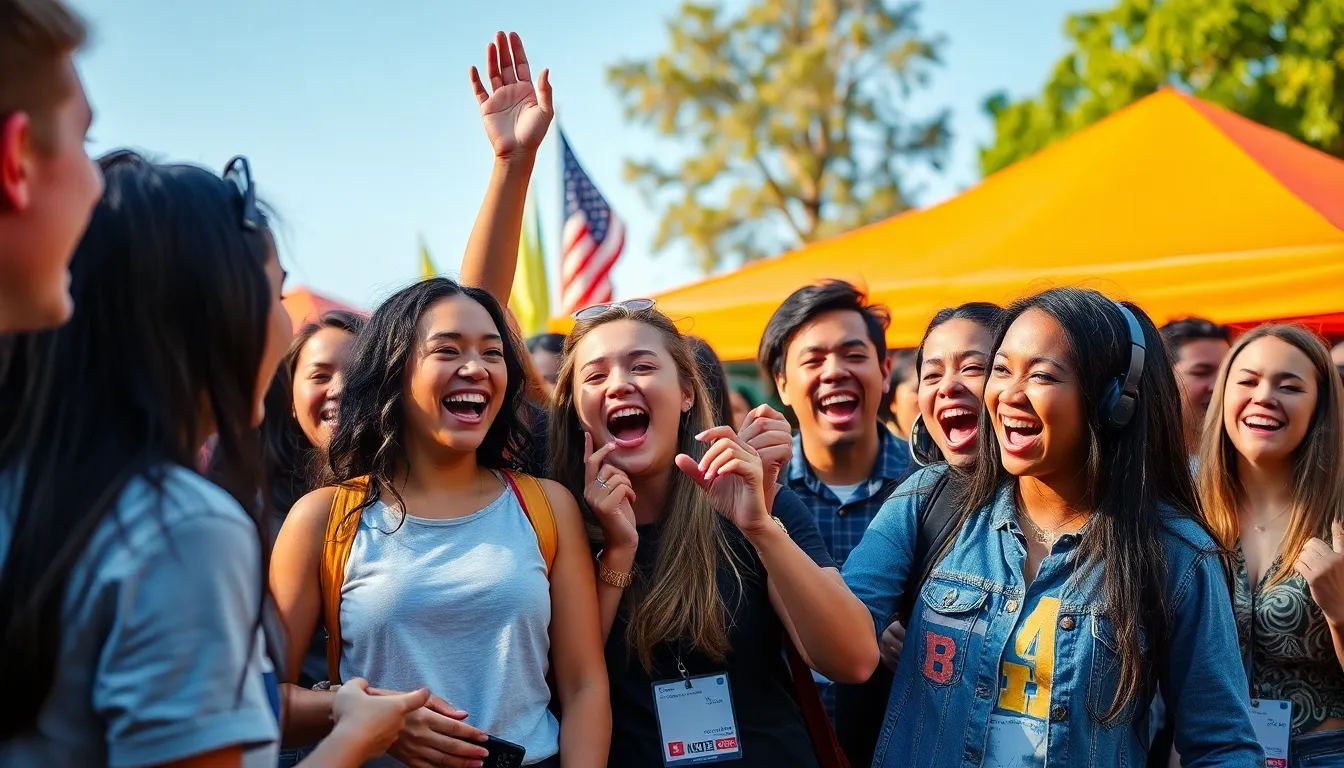Reality TV has taken the entertainment world by storm, captivating audiences with its unscripted drama and real-life stories. From heartwarming moments to jaw-dropping twists, these shows offer a glimpse into lives that are often more outrageous than fiction. With countless options available, finding the best reality TV can feel overwhelming.
As viewers crave authenticity and relatability, reality shows have evolved to cater to diverse interests. Whether it’s competitive cooking, lifestyle transformations, or social experiments, there’s something for everyone. This article dives into the top reality TV shows that have made a significant impact, showcasing the best of what this genre has to offer. Get ready to discover the must-watch series that keep audiences glued to their screens.
Perfect Reality TV
Reality TV offers a diverse range of programming that captivates viewers. Some shows stand out as defining moments in the genre, while others gain recent popularity.
Iconic Series That Defined the Genre
- Survivor: Premiering in 2000, this competition series introduced audiences to strategic gameplay and social dynamics on a deserted island. Its format inspired countless reality series worldwide.
- The Real World: Launched in 1992, this show explored interpersonal relationships among diverse housemates, setting the stage for future social experiment shows.
- American Idol: Debuting in 2002, this singing competition elevated talent-based reality programming, discovering artists like Kelly Clarkson and Carrie Underwood.
- The Amazing Race: Since 2001, teams of two race worldwide, completing tasks while fostering a blend of travel, culture, and competition.
- Keeping Up with the Kardashians: Starting in 2007, this series spotlighted celebrity life, influencing pop culture and reality TV format with its personal storytelling.
Recent Hits Gaining Popularity
- The Circle: This innovative social media competition premiered in 2020, challenging contestants to connect through a profile without face-to-face interaction, engaging viewers with its strategic gameplay.
- Below Deck: Since 2013, this series offers a glimpse into the lives of yacht crew members, mixing luxury and interpersonal drama. Its unique setting attracts a dedicated audience.
- Too Hot To Handle: Since its 2020 debut, this dating competition tests contestants’ self-control amidst romantic temptations, capturing a younger audience with its lighthearted premise.
- Love Is Blind: Since 2020, this dating series examines if emotional connections can form without physical interaction, compelling viewers with unexpected twists.
- Nailed It!: Launched in 2018, this baking competition features amateur bakers attempting elaborate cakes, combining humor and culinary challenges to entertain audiences.
What Makes Reality TV So Engaging?

LOVE Shark Tank products just like we do? Check out Amazon Launchpad for the most amazing offers!
Reality TV captivates audiences through its unscripted nature and the authenticity of real-life conflicts. This genre resonates with viewers, often providing a glimpse into lives that feel relatable and genuine.
Unscripted Drama and Real-Life Conflicts
Unscripted drama fuels viewer interest by showcasing unpredictable interactions among participants. Reality shows present genuine emotions, making conflicts more impactful. Audiences witness raw reactions during challenges, evictions, and eliminations, leading to compelling narratives. For instance, series like “Survivor” demonstrate strategic alliances and betrayals, heightening emotional investment. Viewers connect with participants as they navigate their personal struggles, fostering a sense of empathy and engagement.
Viewer Participation and Voting Mechanics
Viewer participation enhances the excitement of reality TV by allowing audiences to influence outcomes. Voting mechanics create a dynamic experience where fans can support their favorite contestants through phone calls, text messages, or online polls. Shows like “American Idol” and “The Voice” exemplify this process, where audience votes directly impact contestant progression. This interactive element cultivates a sense of community among viewers, driving discussions and debates across social media platforms.
Different Types of Reality TV
Reality TV encompasses a variety of formats, each targeting different audience interests and preferences. Below are the main types of reality TV shows that engage viewers.
Competition-Based Shows
Competition-based shows focus on contestants competing to achieve a specific goal, creating a sense of suspense and excitement. Examples include:
- Survivor: Contestants outwit, outplay, and outlast each other on a remote island.
- The Amazing Race: Teams travel around the world, tackling challenges in different countries.
- American Idol: Singers compete for a recording contract through public voting.
These shows often feature eliminations, personal rivalries, and alliances, keeping viewers invested in the outcome.
Docuseries and Lifestyle Shows
Docuseries and lifestyle shows delve into real-life events and personal stories, allowing viewers to connect with the subjects on a deeper level. Examples include:
- The Real World: A group of strangers live together, addressing interpersonal relationships and social issues.
- Keeping Up with the Kardashians: Follows the personal and professional lives of the Kardashian-Jenner family.
- Queer Eye: A team of experts helps individuals transform different aspects of their lives, from grooming to self-confidence.
These shows often highlight personal growth, cultural issues, and relatable experiences, appealing to viewers seeking authenticity and connection.
Critiques and Controversies in Reality TV
Reality TV generates debates regarding its influence on society and culture, alongside ethical dilemmas surrounding production. Critics often address its role in shaping societal norms and perceptions.
Impact on Society and Culture
Reality TV significantly influences cultural trends, perceptions, and values. Programs often amplify stereotypes while reinforcing societal norms. Shows like “The Real World” illustrate diverse lifestyles, promoting discourse on race and sexuality. Conversely, series like “Keeping Up with the Kardashians” solidify consumerism and superficiality as aspirational models. These portrayals can distort reality, leading viewers to mimic behaviors and attitudes depicted on screen. Furthermore, the globalization of reality TV introduces cultural concepts across borders, affecting how viewers engage with different lifestyles and values.
Ethical Considerations in Reality Production
The production of reality TV raises ethical questions about participant treatment and the authenticity of portrayed scenarios. Producers often edit footage to create dramatic narratives, manipulating contexts to enhance viewer engagement. This selective portrayal can lead to misleading representations of individuals and events. Contestants sometimes feel immense pressure to present exaggerated versions of themselves, contributing to mental health issues. Furthermore, issues arise regarding informed consent, as contestants may not fully grasp the implications of their participation. Ethical scrutiny continues to challenge the industry’s practices, prompting calls for greater transparency and accountability in reality television production.
Conclusion
Reality TV continues to captivate audiences with its blend of authenticity and drama. The genre’s evolution reflects viewers’ desires for relatable content and engaging narratives. From competition-based shows to lifestyle docuseries, there’s something for everyone.
While reality TV has its share of critiques regarding ethics and representation, it undeniably shapes cultural conversations and influences societal norms. As the landscape of reality television evolves, it remains a powerful medium that entertains and sparks dialogue, ensuring its place in the entertainment industry for years to come.















